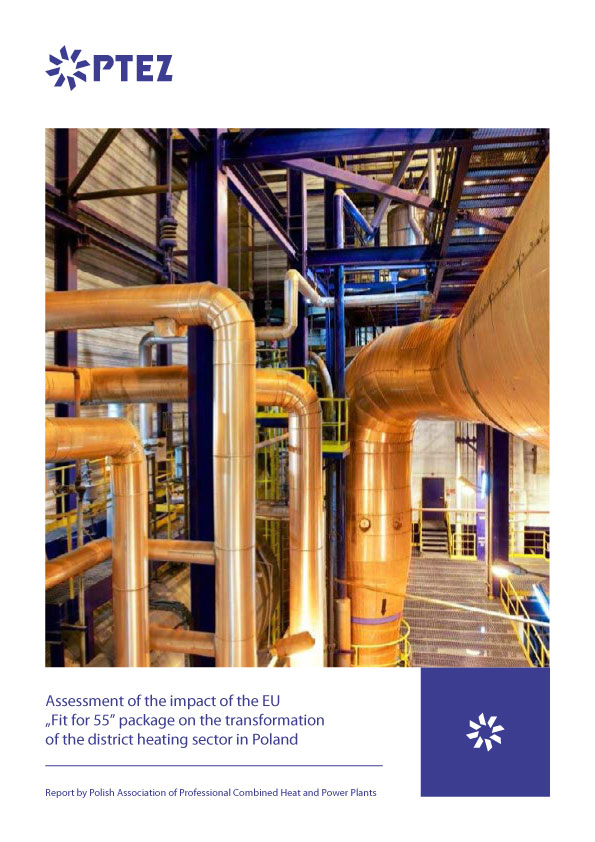Dear Sirs,
the security of supply of heat and electricity to the residents of Poland is a key condition that should determine all investment processes implemented in the power industry. This has taken on particular importance in view of the global impact of the ongoing war in Ukraine and, on the other hand, the need for investment to meet the ambitious goals of the EU climate and energy policy leading to the achievement of carbon neutrality in 2050.
While the broader process of transformation of the largescale district heating sector has definitely accelerated in recent years, the overriding issue was still the direction and trajectory of these changes. For the past two years, intensive work has been going on at the EU forum on the regulations included in the “Fit for 55” package, in which great attention was paid to, among other things, the area of decarbonization of the largescale district heating.
From the industry’s perspective, any provision that conditions the applicability of a particular technology or fuel has a huge impact on the overall investment processes carried out within individual district heating systems. Therefore, the Polish Association of Professional Combined Heat and Power Plants (Polskie Towarzystwo Elektrociepłowni Zawodowych) (PTEZ) was actively involved in consultations accompanying the work on the “Fit for 55” package. Thanks to the efforts of the administration, Polish Members of the European Parliament and the sector as a whole, including PTEZ-affiliated generators, the final agreed legislative solutions are definitely a better reflection of the Polish specificity of large-scale district heating compared to the proposals of July and December 2021.
In this report, PTEZ experts have assessed the impact of key regulations agreed upon as part of the “Fit for 55” package on the transformation of the district heating sector in Poland, pointing out the costs of the process for the entire industry, as well as feasible scenarios and technology options for district heating systems of different sizes. This is the first analysis of its kind, which is also an important contribution to the continuing discussion on the energy transition in Poland.
Although the legislative process in the European Union has already entered the final straight, the next challenge for effective implementation of the decarbonization goals will be to implement the provisions of the most important directives into national law. For this reason, the report also includes proposed directions for the implementation of selected regulations into national legislation, combining the expectation that they will provide valuable input in the process of adapting the Polish legal order.
I wish you an interesting reading!
Wojciech Dąbrowski
President of the Management Board of the Polish Association of Professional Combined Heat and Power Plants
